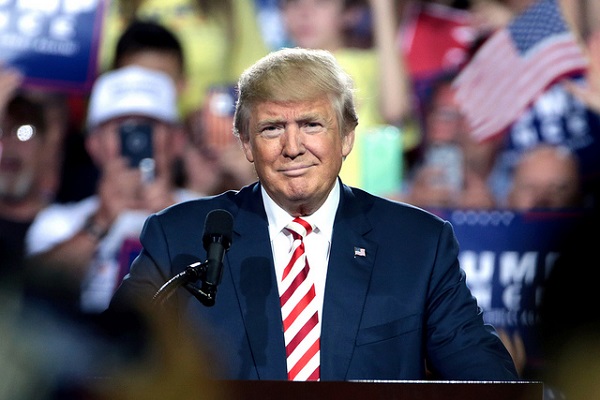
63-year-old Johnson Amendment to be modified following push by Republicans and Conservative Christians
American conservative Christians are all excited that the Republicans set to pass a bill allowing churches and religious leaders to endorse politicians and political parties. The Johnson Amendment, which will be the target of this bill, has prevented religious institutions from involving in political matters and endorsing politicians. Conservative politicians have seen the Johnson Amendment, which has been around for over 60 years, as one of the biggest hurdles that they have in pushing conservative Christian candidates higher up in politics.
Republicans Tax Plan Will Repeal Johnson Amendment, Allow Churches to Endorse Political Candidates[/tweetthis]
The Johnson Amendment has been one of the core issues that Trump had promised to deal with if voted to power. The Amendment expressly states that no should have "deemed to have participated in, or intervened in any political campaign on behalf of (or in opposition to) any candidate for public office, solely because of the content of any homily, sermon, teaching, dialectic, or other presentation made during religious services or gatherings." Needless to say, conservative Christian leaders have vehemently opposed the Johnson Amendment, believing that it curbs their religious freedom. Naturally then, Trump’s promise to do away with the Amendment has resonated well with the conservative Christians, who were the main reason Trump rose to power.
Although Trump had promised to “totally destroy” the Johnson Amendment as president, The House Republicans’ bill does not do so entirely, only modifying it a bit. The bill will allow only churches and not other religious non-profits from endorsing politicians. Besides, Churches can endorse politicians only in discourses such as sermons, and not actively participate in the political process. If the Johnson Amendment would vanish, Churches would be able to accept donations from members and give them to the political candidates that they endorse. This would have proved to be a major factor in changing the very face of America’s political system for the first time after 1954 when the Johnson Amendment came into force. The current bill, however, shows a much softer stance when the promises made before the elections.
this is a big deal: including Johnson Amendment repeal in tax reform is going to make dark money political spending TAX-DEDUCTIBLE pic.twitter.com/y2UizJDVK0
— Brendan Fischer (@brendan_fischer) November 2, 2017
Interestingly, however, most religious people and leaders still believe that churches should not engage in such political discussions as it could break the unity in the congregations. The executive director of the Baptist Joint Committee for Religious Liberty, Amanda Tyler, says the new bill “threatens to destroy our congregations from within over disagreements on partisan campaigns.”
